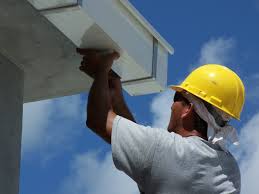
Nearly two in five retiring property owners in Scotland plan home improvements as house prices rise.
With rising house prices increasing the chances of over-55 homeowners in Scotland staying in their current homes, nearly two in five (38%) are considering home improvement projects according to new research by the Equity Release Council.
More than two fifths (44%) in Scotland say they are more likely to remain in their existing home as a result of rising property prices, in contrast to the national average of 42%, and four times the 11% who are tempted to downsize in order to cash in on the extra value in their property (or 17% nationally).
Nearly two in five (38%) also want or need to spend money improving their homes, with over one in five (22%) more likely to do so as a result of rising house prices (while the national figures are 38% and 25% respectively).
But among those who want to improve their homes, more than one in four (26%) cannot afford to spend anything and expect they will have to make do with their home in its current state (compared to a national average of 29%).
The kitchen is a main focus of investment for Scotland's over-55 homeowners: 32% say this is the part of their home they have spent the most on in the past and 25% say it is the one that is most in need of repair or renovation, placing it first or second on both counts.
Bathrooms and bedrooms were cited by 19% & 14% respectively of over-55 homeowners as their priority for repairing or renovating, influenced by the fact that both are among the top three parts of the house that homeowners would be most ashamed of showing off to visitors.
However, redecorating is the home improvement that over-55s are most likely to make: 54% want to make this change, ahead of making garden improvements (33%) or installing a new kitchen (33%) or bathroom (32%).
This suggests that with budgets stretched, over-55s are focusing their efforts on affordable improvements that can also add value to their homes.
Of the top five value-adding improvements identified by over-55 homeowners, a loft conversion adds the greatest value (£20,000), but costs more than this to install – suggesting it is better suited to those who want to remain in their property and need additional space.
In contrast, the value gained from installing a new kitchen is double the initial cost.
The majority (81%) of over-55 homeowners in Scotland would first turn to their savings to fund home improvements. The average spend among those who can afford to have work carried out is £7,436 but with one in five over-55s (22%) having less than £10,000 in their savings pot – and 5% having no savings at all – not everyone is able to rely on this source of finance (compared to a national average of 20% with less than £12,000 and 8% with no savings at all).
As a result, a fifth (20%) have put off important repairs or changes to their home because of a lack of money, while 15% have carried out improvements themselves because they could not afford outside help. Over a quarter (26%) of those who want to make home improvements say they simply cannot afford to do so.
If savings were not an option, 30% in Scotland would consider using equity release to fund home improvements (compared to a national average of 27%) and one in five (20%) would turn to a credit card.
Nigel Waterson, chairman of the Equity Release Council, commented:
"As house prices continue to rise, it’s unsurprising that many over-55s have decided to side-step the cost of moving by remaining in their current property and investing in home improvements instead. Whether they do this to get more enjoyment out of their home, add value or simply make life easier and more practical, home improvements can be a great way of turning a family home into a dream property.
"However, home improvements can rack up an extensive bill, especially in the case of structural changes such as extensions or conversions. Not everyone has a large savings pot to dip into, and it would be unwise to eradicate savings in the approach to retirement. Consumers should consider equity release among their options to turn their home into the one they aspire to live in during retirement."


 Man, 44, seriously injured in hospital after crash between Comrie and Rosyth
Man, 44, seriously injured in hospital after crash between Comrie and Rosyth
 John Swinney announces SNP leadership bid
John Swinney announces SNP leadership bid
 Closures on A92 from TONIGHT for roadworks
Closures on A92 from TONIGHT for roadworks
 14°C
14°C
 12°C
12°C
 16°C
16°C